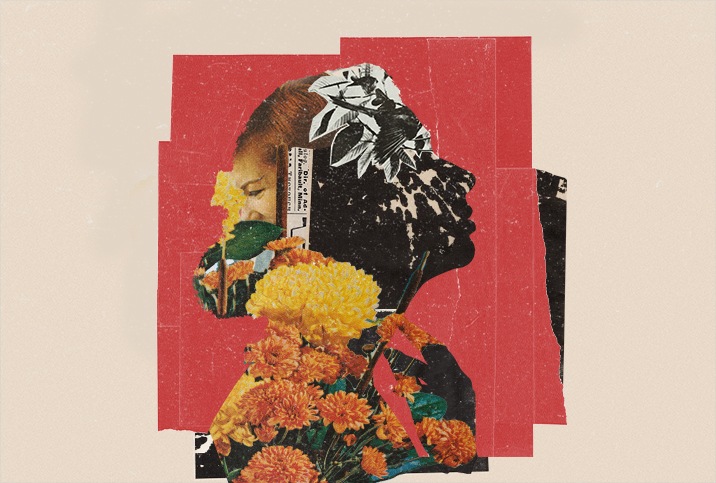Forging a Couple Identity

From birth, we experience expectations to look, behave or live a certain way. For example, thinking of a lawyer, doctor, professor or police officer may trigger stereotypes of those identities that we expect to see.
Similarly, when we look at couples, we see two people we know as individuals slowly melding into one entity. Conversely, we know of couples who are constantly in turmoil as one issue after another seems to undermine their bond.
What causes this conflict? Is it simply incompatibility or are there larger issues that keep couples from thriving?
"We spend [so] much of our lives trying to live up to the expectations of what we should be that it's so easy to lose ourselves in the process," said Amelia Roschelin, D.S.W., a practice and improvement consultant with the National Council for Mental Wellbeing in Washington, D.C.
The stereotypes of our relationships
The pressures on relationships can weigh differently for each couple and for each person in that couple, depending on their individual upbringing, socioeconomics and the personalities of their parents.
"Whether we want to admit it or not, the relationships we grow up with go toward creating a model that we try to emulate in our adult lives with our own partners, even if that model is toxic," said Kimberly Pisarcik, a licensed clinical social worker in Wilkes-Barre, Pennsylvania. "These relationships create an unspoken, inherent set of rules that we follow in our romantic relationships. Unfortunately, the model our parents created is not often healthy and is typically filled with stereotypical dynamics that were damaging then and more so today."
These models can destroy a relationship. However, realizing we built this model by example empowers us to change it and create our own identity as a couple.
Eliminating should, would and could
"The first step to overcome these behaviors is to think about what your relationship is and what aspects of that relationship fall into the 'should, would and could' labels," Pisarcik explained. "Should, would and could are the most damaging words in our vocabulary because they make us look at a situation from what we want our reality to be rather than what it actually is.
"When we let these expectations dictate our lives, we can fall into a pattern where we try to live up to an image in our head which, in reality, is never possible," she added. "The result is that we are in a constant state of disappointment. And when it comes to a relationship, this disappointment develops into resentment of our partners."
These expectations can find their way into everything: our careers, plans for building a family, where we live, the cars we drive, our marriage and, especially, our sex life. Life unfolding differently than we expected can lead to anger and conflict in a marriage.
"When a client comes to me, they often say they are angry because someone in their life 'should have' done something," Pisarcik said. "As soon as they say this, I stop them and ask, 'What do you mean they should have?'"
This approach might seem dramatic, but it creates a habit of stopping ourselves when we make decisions about any major milestones, for example, when a parent tells you that you "should" get married or "should" have children.
Does that pattern of expectations work for your relationship? For many couples, it might, but that doesn't mean it will work for you.
Building an honest relationship
Communication at the onset of a relationship helps people get to know one another, but as time continues, we may forget to check in with each other. For example, say you get offered a promotion and mindlessly accept it because that's what you "should" do, right?
However, the same decision made within the dynamic of a couple might prove a misstep. To the outside world, it may seem crazy to turn down an offer for more money, but maybe this "opportunity" brings more stress, less time at home and the potential to work with new colleagues who might not be as friendly. With this fresh perspective, the decision might be one worth discussing.
In a healthy relationship, both partners should be able to speak their minds to each other, discuss repercussions of the potential promotion and take the time to consider how this change might impact their home life and future.
"It can take time to build this healthy line of communication because we even have stereotypes about how we should communicate as a couple," Pisarcik explained. "Just because a problem arises quickly doesn't mean it needs to be solved quickly."
Instead, she suggested presenting the problem and separating into your own corners to consider the options and how you might handle it on your own. Then come together as a couple to agree on a solution.
"In the end, the decisions you make as a couple have to be right for the both of you because you're the ones who need to live with it," Pisarcik added. "While everyone around you will have an opinion, you are the ones this decision will impact, so make the choice that fits your needs, your desires, and stop worrying about what others might think."
Becoming a couple might make you feel as if you need to sacrifice your own identity. But making choices that nurture your identities allows both parties in a relationship to build a bond as a couple that might diverge from societal expectations. Just because everyone else is doing something different, don't let that pressure you to do the same. Make every decision together and make them count.


















